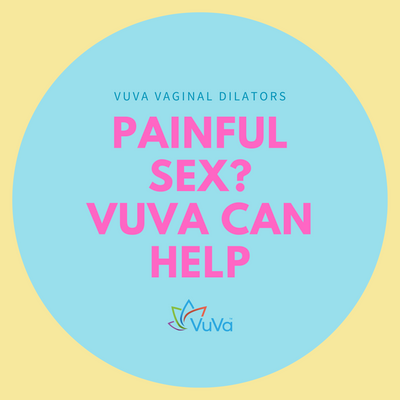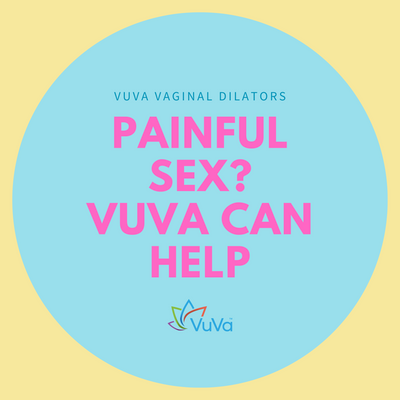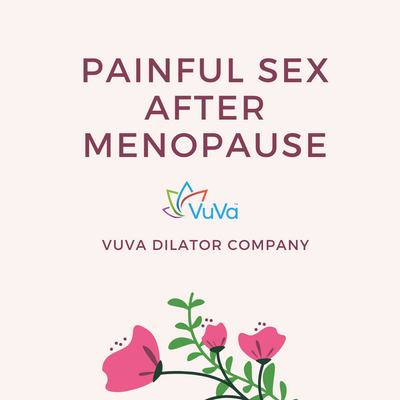
| Tara Langdale
What Causes Vaginismus? Understanding the Root of Painful Penetration
Vaginismus is a condition that silently affects countless women, often causing distress, confusion, and significant impact on intimate relationships. Defined by the involuntary tightening of the vaginal muscles during attempted penetration, it can lead to pain, avoidance of intimacy, and psychological distress. While the physical symptoms are evident, understanding the root causes of vaginismus is key to finding long-lasting and compassionate treatment solutions.
In this article, we will dive deeply into the known causes of vaginismus, including psychological triggers, medical conditions, and life events that contribute to this condition. We will also introduce a safe, non-invasive treatment option that many women are turning to: VuVa Magnetic Dilators, a product designed with healing and empowerment in mind.
Emotional and Psychological Causes
Emotional trauma is one of the most widely recognized contributors to vaginismus. Women who have experienced sexual abuse, medical trauma, or emotionally painful sexual experiences may develop a psychological resistance to penetration. This emotional pain becomes hardwired into the body’s response system, resulting in involuntary muscle contractions as a form of protection.
Fear of pain is also a common psychological driver. Women who anticipate pain during intercourse may subconsciously contract their pelvic floor muscles, perpetuating a cycle of discomfort and anxiety. This anticipatory tension reinforces the body’s protective response, making penetration increasingly difficult over time.
Cultural and religious beliefs about sexuality can contribute to shame or fear around sexual activity, especially if sex is portrayed as taboo or sinful. These deep-seated beliefs can manifest physically, creating involuntary responses that hinder sexual function.
Physical and Medical Triggers
Hormonal changes, especially during menopause or after childbirth, can lead to vaginal dryness and thinning of vaginal tissues (atrophy), contributing to discomfort during penetration. This discomfort can condition the body to expect pain, leading to vaginismus.
Other physical causes include urinary tract infections, yeast infections, endometriosis, vaginal scarring, or complications from surgery. Painful pelvic exams or medical interventions such as radiation therapy can also initiate a trauma response that evolves into chronic vaginismus.
According to the Cleveland Clinic, vaginismus is often a combination of both physical and emotional components. The interplay between muscle reflex and psychological conditioning is central to understanding and treating this condition (https://my.clevelandclinic.org/health/diseases/14582-vaginismus).
The Mind-Body Connection
Vaginismus is a classic example of the mind-body connection. Even in the absence of structural abnormalities, the body may interpret sexual activity as a threat. The pelvic floor muscles tighten in anticipation, and over time, this becomes a conditioned reflex.
Healing involves both physical desensitization and psychological reframing. This dual-approach is what makes the use of vaginal dilators particularly effective. When paired with emotional support and counseling, dilators help the body re-learn how to receive penetration without fear or pain.
VuVa Magnetic Dilators: A Holistic Option
VuVa Magnetic Dilators are designed to gently stretch and desensitize the vaginal tissues while promoting healing through the use of neodymium magnets. These magnets help increase blood flow, reduce inflammation, and encourage tissue regeneration. This is especially helpful for women whose vaginismus stems from postmenopausal atrophy or surgical trauma.
The smooth, medical-grade construction and progressive sizing of VuVa dilators ensure a gradual and comfortable experience. The magnets embedded in each dilator offer therapeutic benefits that go beyond simple stretching, making them a valuable tool for holistic healing.
If you’re ready to address the root causes of vaginismus and begin a journey toward comfort and confidence, visit vuvatech.com to explore how VuVa Magnetic Dilators can support your healing.
Conclusion
Vaginismus is a deeply personal condition with a wide range of causes. Whether your symptoms stem from emotional trauma, medical conditions, or a combination of both, it is important to know that you are not alone and that effective, non-invasive solutions exist.
Address both the physical and emotional dimensions of healing by integrating gentle therapy tools like VuVa Magnetic Dilators into your wellness plan. Begin your journey toward pain-free intimacy today by visiting vuvatech.com.












